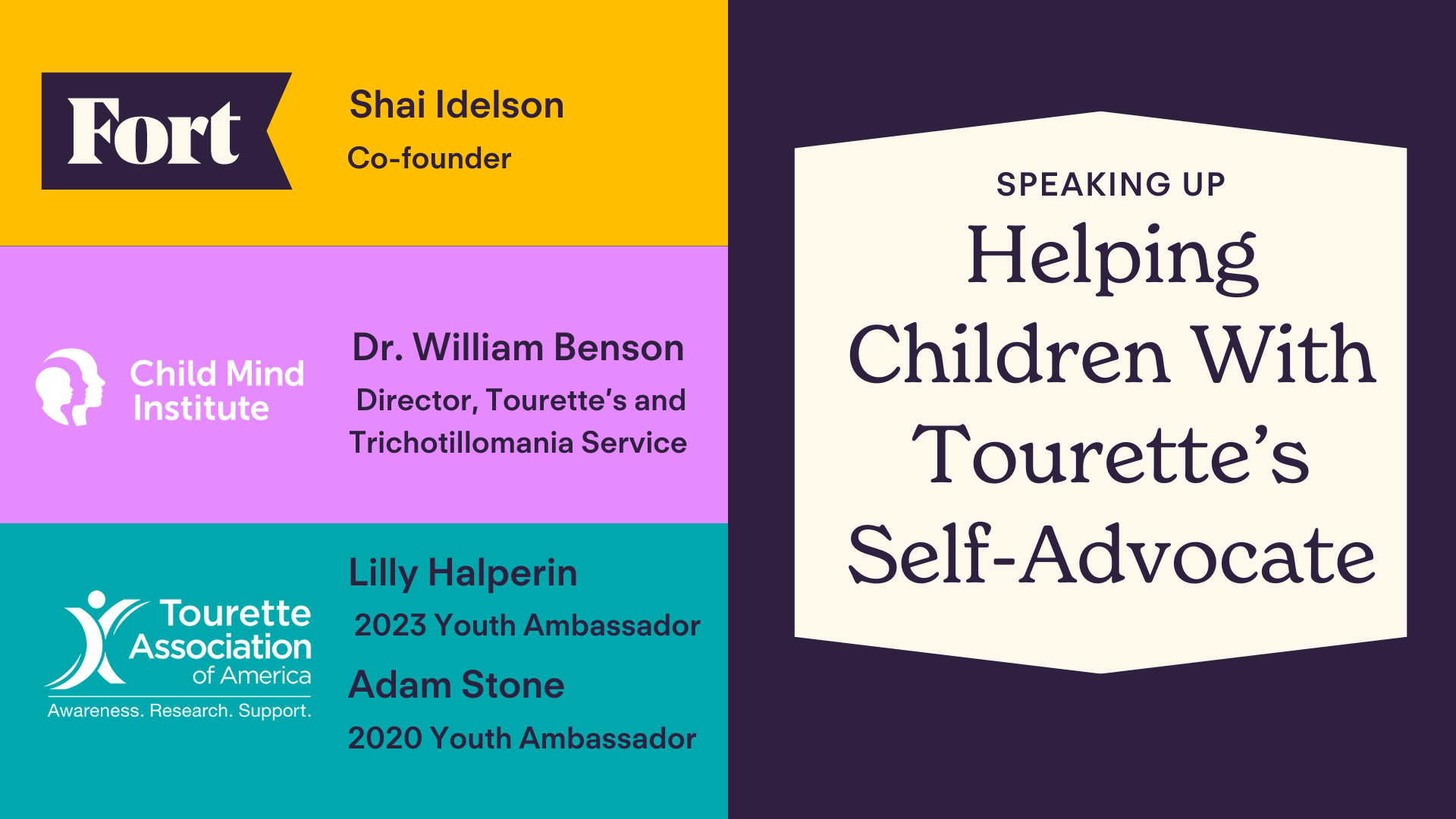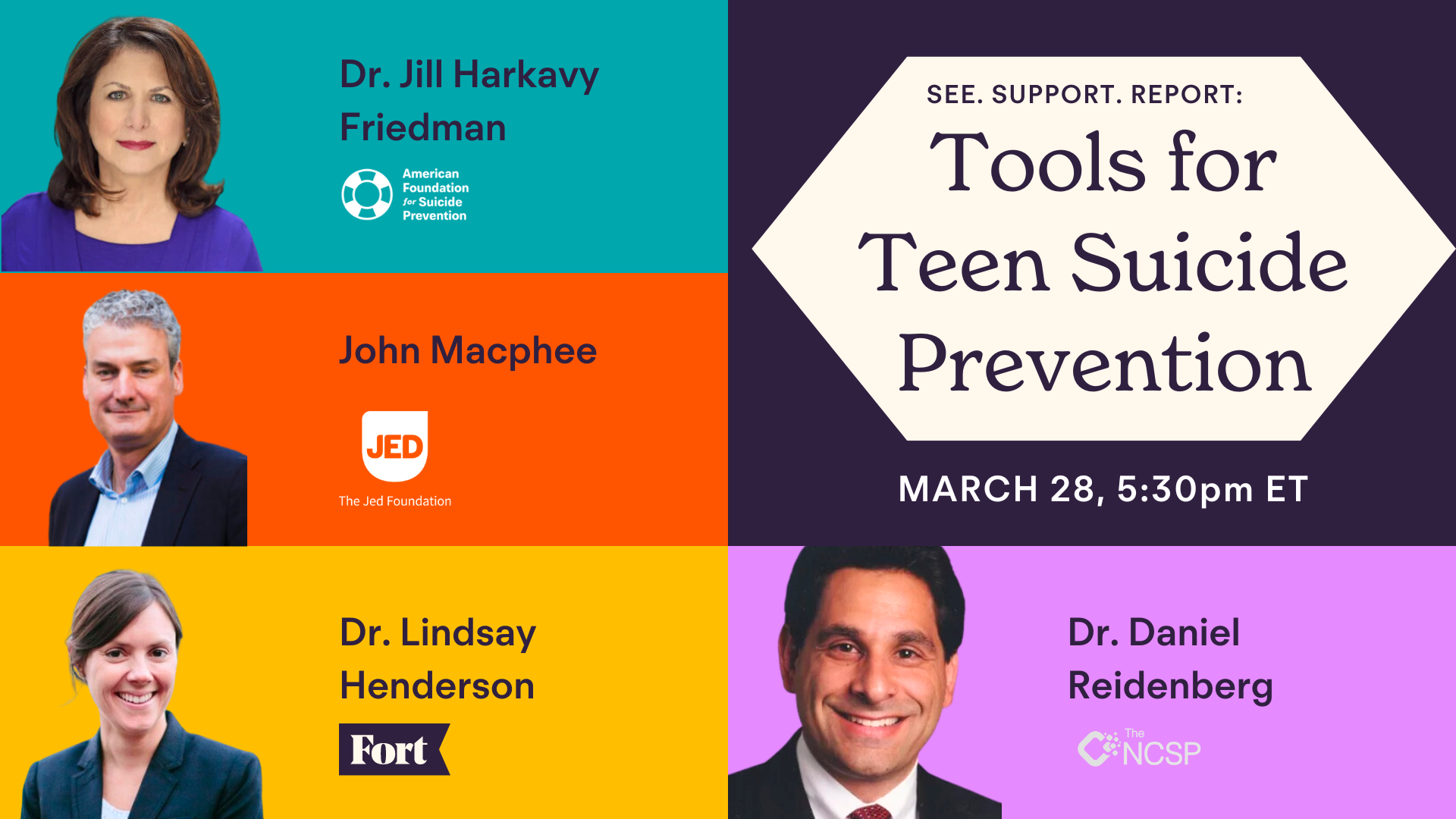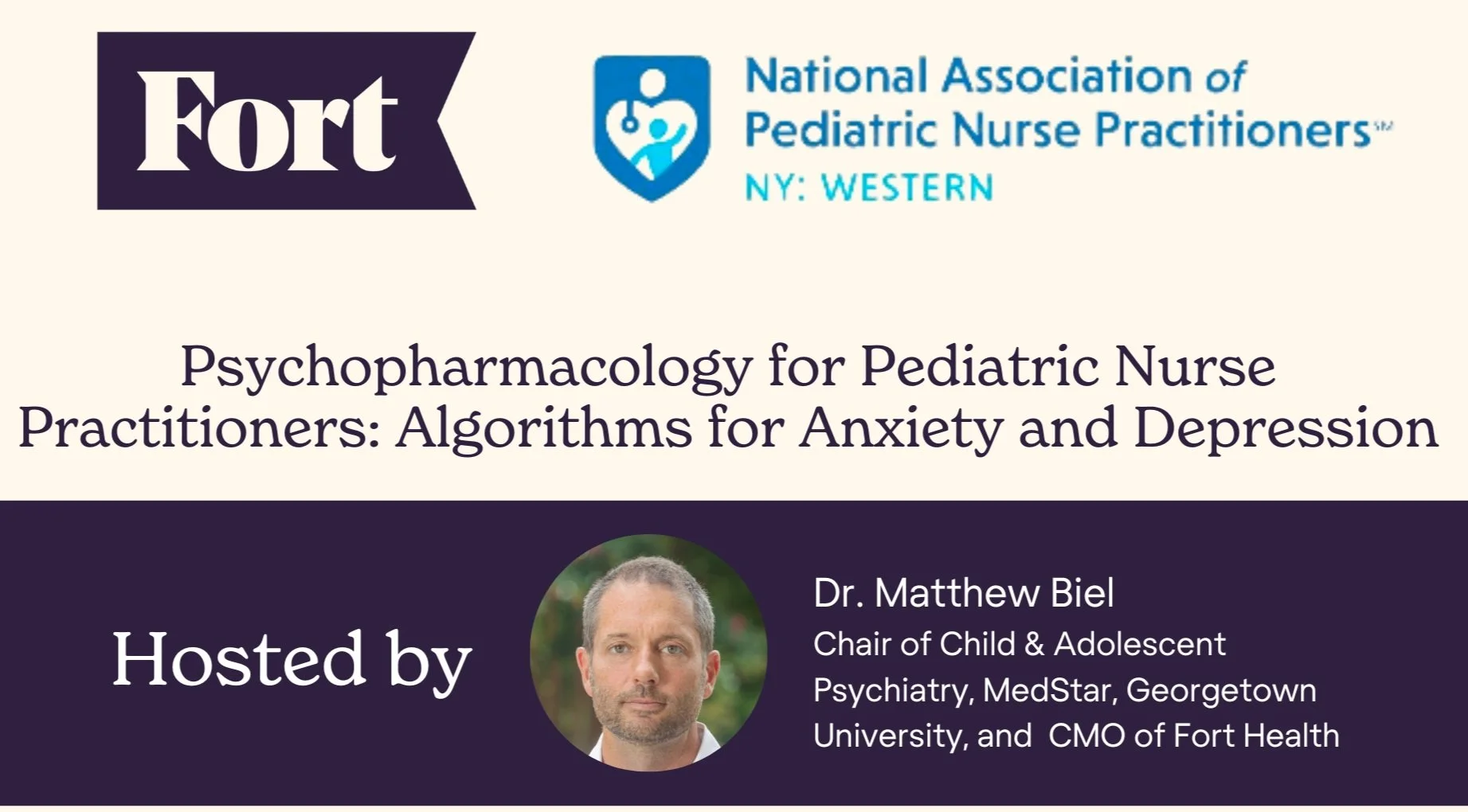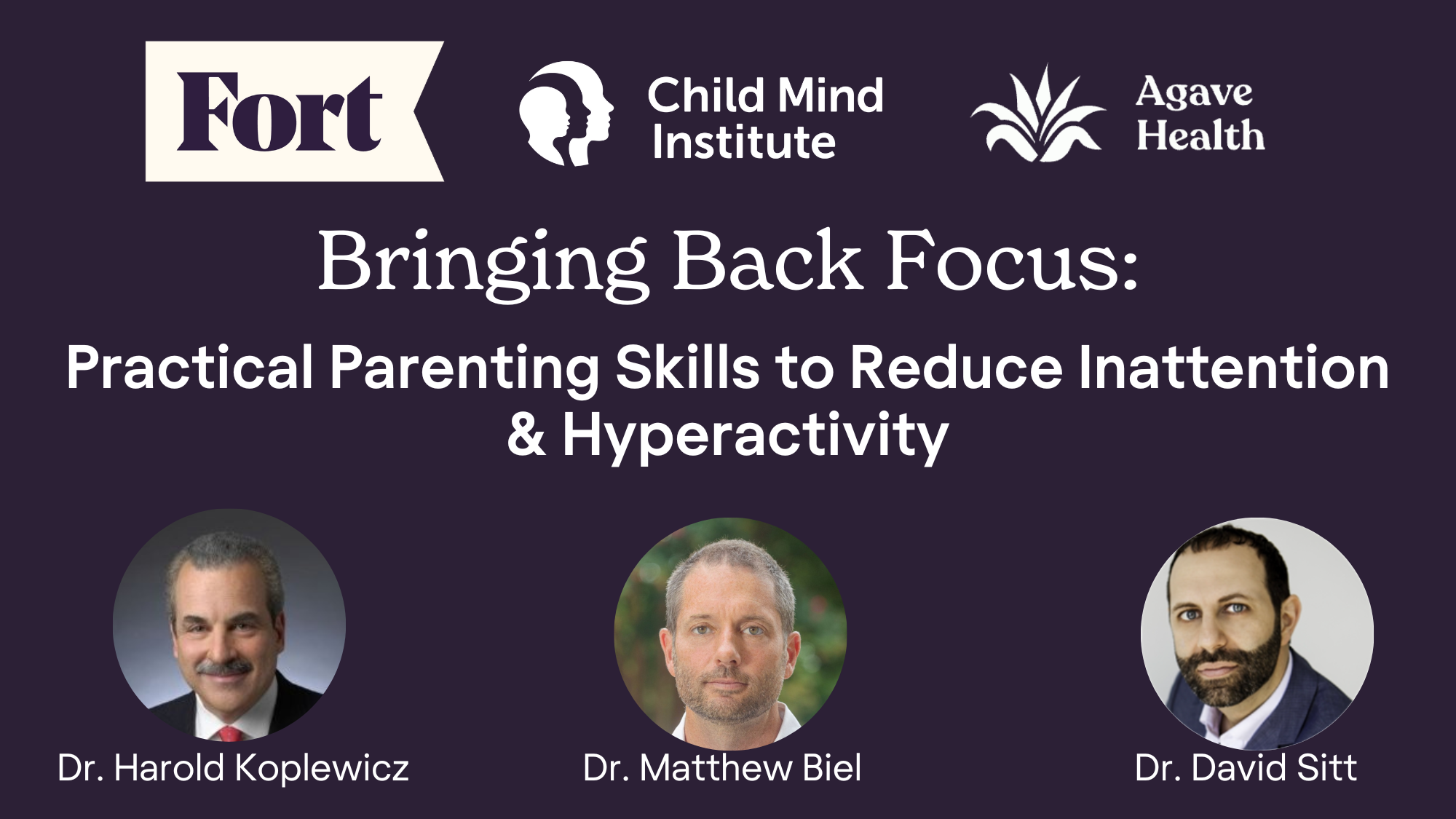Why More Girls Suffer From Depression and How to Support Them
Girls are twice as likely as boys to experience depression and attempt suicide. Watch our webinar to learn why and discover ways caregivers, primary care providers, and educators can offer support.
Why Boys Struggle In School And How to Help
Learn why boys are struggling academically and how caregivers, educators, and policymakers can work together to support them academically while protecting their mental health.
Helping Young People Navigate Worrying News
Children face constant negativity in a news and media world that incentivized to catastrophize. In this session, Dylan Goodwin, LCSW and Clinical Supervisor at Fort Health will guide parents and caregivers on how to help children build resielicen and perspective to cope with worrying news.
Parenting Resilience in Children Through Optimism
Children face constant negativity from the media, contributing to rising anxiety and depression. To combat this, watch our session with the Child Mind Institute and Dr. Sue Varma and learn how to foster resilience and optimism in children.
Speaking Up: Helping Children With Tourette’s Self-Advocate
Watch a roundtable discussion on self-advocacy for neurodivergent children. Learn about the importance of self-advocacy, strategies to help children advocate for themselves, and ways for parents and schools to support self-advocacy. Hosted with Child Mind Institute and the Tourette Association of America.
Innovations in Behavioral Health for Pediatric Practices
Pediatric practices are drowning in behavioral health visits. Watch this special webinar where clinicians from three telehealth providers shared how we work with pediatricians to provide fast access to care. Hosted with the NJ Chapter of the American Academy of Pediatrics.
Chronically Absent: How to Manage School Refusal
Watch our roundtable discussion about chronic absenteeism, an issue that affected over 35% of students in some states in 2023.
Discover the underlying causes, especially ones related to mental health, learn about school refusal, and discover practical coping strategies to help your child get back to school.
See. Support. Report: Tools For Teen Suicide Prevention
Suicide ranks as the second leading cause of death among youths aged 10-24, a concerning trend highlighted by a 52.2% increase in suicide rates from 2000 to 2021. Watch a recording of this roundtable discussion to learn how to recognize the signs of a youth at risk of suicide, support them through open communication, and effectively report your concerns.
Parenting Tips For A Teen Loneliness Epidemic
Despite increased online connectivity, we are facing an "Epidemic of Loneliness and Isolation," especially among young people. Parents face a tough choice: encourage offline social interaction and risk resistance, or let them be, potentially increasing the risk for depression and anxiety.
We hosted a webinar that provided practical parenting tips on how to help children and teens build social bonds without appearing to be pushy.
Psychopharmacology for Pediatric Nurse Practitioners: Algorithms for Anxiety and Depression
Nurses are asked to get involved with behavioral health care including prescribing. Many feel they lack the time and training to do so.
Fort Health and NAPNAP NJ and Western NY (National Association of Pediatric Nurse Practitioners) have partnered to host a free webinar for members and guests to share the algorithms for anxiety and depression medication management.
How To Be On Social Media Without Feeling Sad
Learn practical tips on how to stay safe and avoid sadness while using social media. This session provides parents and teens with practical coping tools, not just rules and time restrictions.
Practical Parenting Skills to Reduce Inattention & Hyperactivity
Empower parents, school counselors, and primary care physicians with knowledge and practical strategies to effectively support children struggling with inattention and hyperactivity. At home and in the classroom.
Coping With The Mental Health Aspects of Tourette in Children
Practical skills and advice from leading mental health and Tourette’s experts who will help you: understand the mental health challenges that often accompany Tourette’s, how to spot the signs, how to help children cope with these challenges, and when and how to find qualified help.
How to Help Children Cope With Anxiety and Trauma
To help families impacted by recent events in Israel and Gaza, we hosted child psychiatrists, psychologists, and trauma specialists for a free webinar that helps families understand:
1. How to talk to our children about recent horrific events?
2. Principles of coping with your and your child's trauma
How To Steer Through Back-To-School-Stress: A Parent’s Guide
Learn proven and practical strategies to help parents and educators cope with a child's anxiety around back to school as well as your own stress. From morning routines to bullying to academic pressures to dealing with anxiety.
What Pediatricians Need To Know About Child Anxiety
Pediatricians from Consensus Health in New Jersey joined Fort Health's CMO and the Chair of Child & Adolescent Psychiatry at MedStar Georgetown University Hospital for a discussion about:
1. Diagnosing anxiety
2. Treating anxiety including medications
3. How to involve parents and why parental involvement is critical
4. How to work with a partner behavioral health provider
Who’s Stealing My Child’s Sleep?: Parenting Strategies For Bedtime And Beyond
70% of high schoolers don’t get enough sleep and 90% of teens do not believe they can get enough sleep.
Join leading mental health and sleep experts to learn how much sleep kids of different ages need, why they aren’t getting enough, and how parents can help them go to sleep and stay asleep.
The session includes practical tools and principles you can use tonight.
Why Are Many Kids Anxious and How Can Parents Help?
Child anxiety is one of the most common mental health challenges families cope with. Some of the nation’s leading mental health and child anxiety experts shared proven and practical strategies about how parents can alleviate their child’s anxiety. The session was followed by a live Q&A and was presented by Fort Health with the Child Mind Institute.
Supportive Parenting for LGBTQ+ Youth
Supportive Parenting for LGBTQ+ Youth: Dr. Michael Enenbach, Dr. Matt Biel, Dr. Ronita Nath, and Dr. Lindsay Henderson share practical advice for parents of LGBTQ+ youth and their peers. Presented by Fort Health with the Child Mind Institute and the Trevor Project.
What Social Media Does To Your Child and What You Can Do About It
What Social Media Does To Your Child and What You Can Do To Help




















